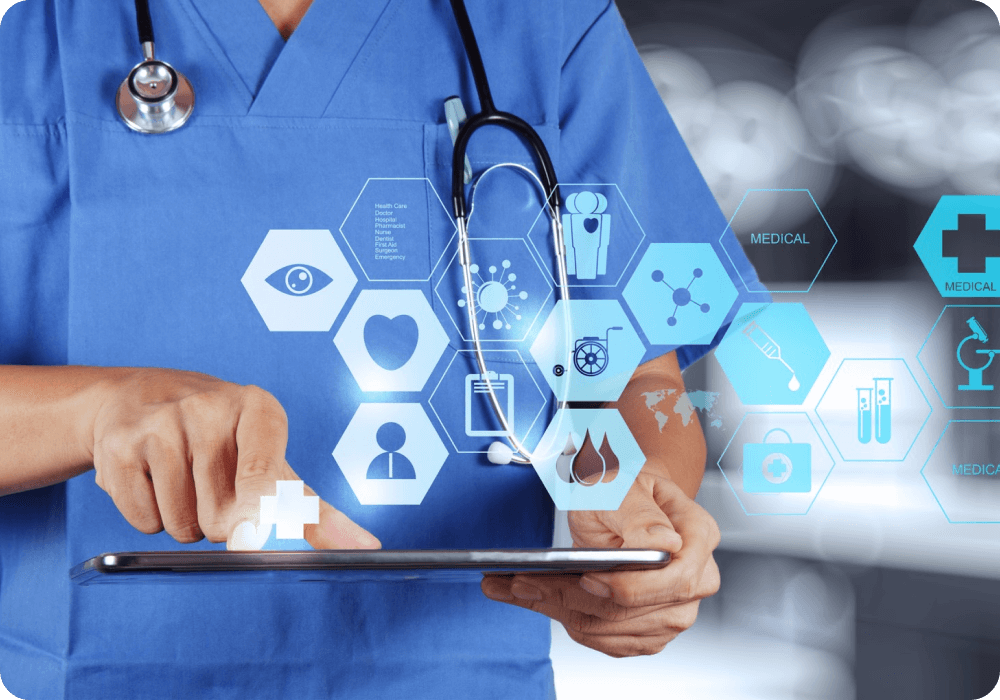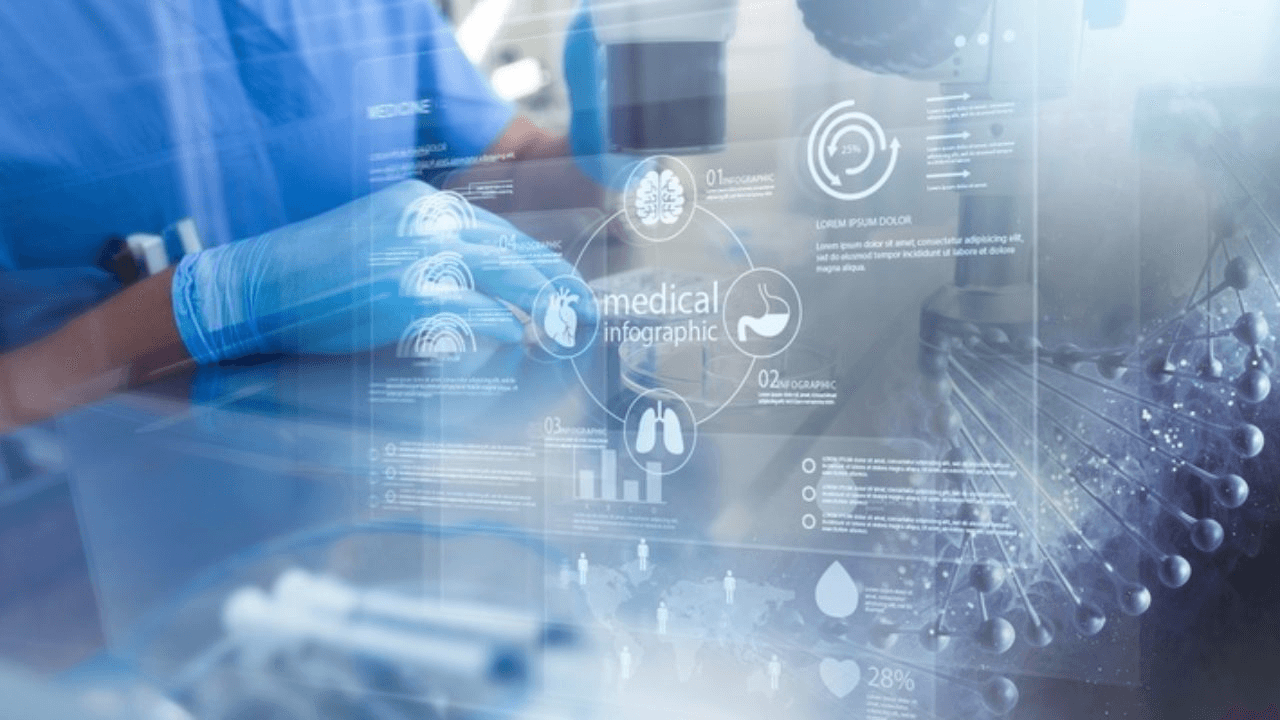We’ve heard much about Big Data technology since its appearance in the public domain in early 2010 (despite the term being used since the 1990s). Everything in the IT sector seemed to be related or in need of data analysis – especially when the amount of data was too big or complex to handle with traditional data-processing software. How to manage huge data sets became the pursuit of government and big companies alike.
Since then, the use of Big Data has exceeded all expectations. Perhaps, one of its most interesting applications and developments is related to one of the richest and most complex sectors: the healthcare industry.
In the past years, health technology has evolved in a way that medical data from patients is getting more challenging to analyze, with multiple sources of information to consider including:
- Diagnostic information.
- Doctor’s observations.Real-time data from medical equipment.
In this sense, consolidating a comprehensive view of all the data to get deeper insights – not only about the state of the patients (and potentially saving lives) but also about the quality of the processes involved – is the biggest challenge of healthcare Big Data today.

How does big data benefit healthcare?
There’s no doubt that healthcare Big Data has a massive positive impact on society. Not only it can improve the life of patients and the quality of health services -by streamlining processes and reducing costs-, but it can also help on a worldwide level with global challenges like preventing new pandemics or improving medical treatments related to longtime illnesses. In a nutshell, healthcare data can:
Increase efficiency of healthcare data processing
Sources of medical information are countless. From data created by humans like medical cards to new data-collecting sources like social media and wearables (like smartwatches and fitness trackers), and everything in between like scientific research, financial information from healthcare providers, Electronic medical records (EMR), and biometric data from medical equipment like X-rays machines or MRI scanners. Big data can bring them all together, improve visibility, and storage, and ease data comprehension and analysis.
Improve diagnosis and research operations
With clearer and more complete information, Big Data analytics can reduce human errors and avoid wrong conclusions/diagnoses at the time of looking for potential causes and defining future steps for treatment. This translates into higher-quality patient care, sharper research modeling, and safer outcomes.
Finance management
Not only patients and doctors can benefit from healthcare Big Data but also other support functions in the healthcare industry like Finance and Accounting professionals. The insights brought by Big Data analytics can help process financial information and find inaccuracies and rectify them or identify cost-cutting or investment opportunities.
Top use cases of healthcare Big Data
As we’ve seen, the benefits of using Big Data in healthcare are game-changers for the sector. Let’s take a look at some specific use cases of this technology in medicine.
Electronic Health Records (EHRs)
This is the most widespread use case in healthcare Big Data. An EHR is a solely digital record of the patient’s medical history along with demographic information, allergies and pre-existing conditions record, laboratory test results, etc. All the data is consolidated in one file shared via secure information systems across healthcare providers in the public and private sectors. As they are modifiable, EHRs allow to implementation of changes in real-time with no extra paperwork and no danger of duplicated tests. This translates into cost reduction and increased service efficiency.
Real-time health monitoring and alerts
Big Data, combined with data collecting technologies like IoT sensors, allow a wide range of real-time healthcare monitoring tasks. For example, you can track valuable patient information like visits to emergency rooms, duration of hospital stays, news on treatment progress, etc. – everything on the go. Data is gathered on the cloud and analysis can also be performed in real-time, triggering warnings and reminders, avoiding further delays for necessary referrals to other specialists, changes in medication, the need for new lab tests, and more. With wearable devices, doctors can even track their patients’ blood pressure or asthma trends with instant alerts to take proper action.
Telemedicine
With the current status of live technology (video conferencing, smartphones, wireless devices), telemedicine has stepped up its game. Now, with healthcare Big Data, providing medical services at a distance not only means giving a primary diagnosis but also monitoring health at the moment and even performing telesurgery (a doctor can lead an operation with robots and high-speed real-time information delivery). Telemedicine has a lot of upsides: preventing hospitalization, reducing readmissions, and cutting expenses – doctors and patients don’t need to waste time commuting, making lines, attending unnecessary consultations, or filling documentation.
Security enhancement
By detecting unusual changes in the systems, Big Data analytics can help to identify potential cyber-attacks. As health data is extremely valuable, preventing data breaches in the sector is of the utmost importance – for the past 12 years, data breaches in the healthcare industry have been the most expensive, with an average breach costing $10.10 million dollars. For the same reason, Big Data can also prevent and detect fraud in healthcare, noticing anomalies and streamlining the process of collecting claims, billing, and other types of information.
Prediction of mass outbreaks
The covid outbreak in 2020 made the whole healthcare industry think about a way to improve the design of predictive models of outbreaks progress. With Big Data, it’s possible to build intelligent social models of population health to predict and prevent crises faster and to design more accurate targeted vaccines altogether. 
Healthcare Big Data benefits for your business (even if it’s not healthcare-related)
You don’t need to be in the healthcare industry to take advantage of all the benefits we revisited in this article. At Vanguard X, we leverage powerful Big Data technology to help your business thrive with cost reduction, faster and better decision-making, and custom-made digital products based on users’ accurate data.











